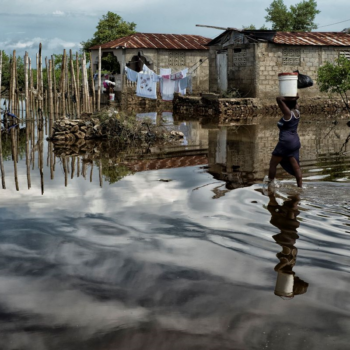A coalition of 100 development, faith-based, environment and conservation, health, science, foreign policy, and business organisations urge the U.S. Government to protect and support increased funding for U.S. foreign assistance overall and international climate finance within an FY23 appropriations package.
Specifically, 100 organisations call on the House, Senate and President Biden to retain the $64.5 billion for U.S. foreign assistance programs in the House and Senate FY23 appropriations bills. Within that, we urge the government to seek the highest possible amount for directly appropriated international climate finance to get as close to President Biden’s $11.4 billion commitment this year as possible. This includes delivering no less than the $3.76 billion included in S. 4662, the Senate FY23 State, Foreign Operations, and Related Programs appropriations legislation.
Investments in international climate finance are key to U.S. credibility and influence on the global stage. Investing in climate change solutions internationally also benefits people in the U.S.
Developing countries face disproportionate and destabilizing impacts from climate change and increasingly severe extreme weather events. Investing in the capacity and ability of developing communities to build their resilience and withstand the negative effects these changes are having on their food and water security, social stability, and human lives and livelihoods enhances U.S. national security. Specifically, these investments can address the causes of instability and fragility, including more severe and frequent weather hazards, decreased agricultural production and food security, and increased water scarcity. Such preventative measures also greatly mitigate later costs in U.S. humanitarian aid.
Financing for international climate programs serves vital U.S. interests by promoting global stability and security, creating economic opportunities for U.S. businesses and workers, alleviating global poverty and food insecurity, protecting investments in international development, complementing global health efforts, and ensuring significant cost savings by promoting resilience and disaster preparedness.
Read the full letter with signatories, addressed to the House, Senate and President.


